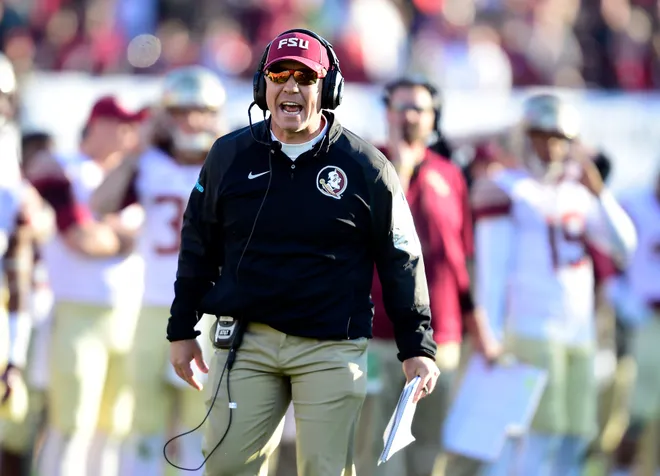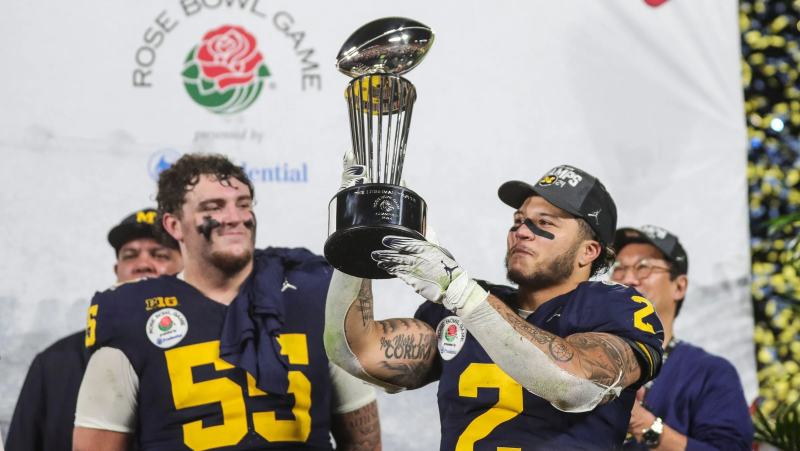Alabama's challenge after Nick Saban: Replacing legendary college football coach isn't easy
You can plan ahead, map out your options and keep a list of candidates inside the bottom drawer on your desk. But nothing can prepare a program for having to replace a legendary head coach.
That’s the task ahead for Alabama following the retirement of longtime coach Nick Saban, who won six national championships with the Crimson Tide and seven overall during what ranks as the most impressive coaching career in Bowl Subdivision history.
There a very few precedents for this hire. How many schools have entered into the hiring pool after losing the most successful coach in program history? And what is the ensuing track record for the coaches hired to replace a legend?
There’s a saying in coaching circles: It’s better to replace the guy who replaces the legend than replace the legend himself. Alabama’s next head coach will spend his entire tenure in Saban’s shadow, which might scare off a few contenders for the position.
Here's how similar hires in college football’s modern era have panned out. History tells us Alabama will struggle in the transition:
Ohio State: Woody Hayes to Earle Bruce
Hayes won multiple national championships and put together a dominant run in the Big Ten before trailing off in his final seasons, culminating in an ugly sideline incident during his final game, a bowl loss to Clemson. His replacement, Earle Bruce, went to the Rose Bowl in his debut season in 1979 and again in 1984 but was let go after going 6-4-1 in 1987. The Buckeyes would go more than 20 years from Hayes’ dismissal before winning another national title.
Florida State: Bobby Bowden to Jimbo Fisher
Things had trailed off for Bowden and the Seminoles during the 2000s, leading the program to name Fisher, then the offensive coordinator, as his coach-in-waiting. That promotion came in 2010 and almost immediately paid huge dividends. Fisher won 19 games in his first two seasons and built one of the best teams of the century in 2013, following up that unbeaten season and title with a berth in the inaugural College Football Playoff. Things would grow tired quickly, though, and Fisher would be gone by the end of the 2017 season.

Nebraska: Tom Osborne to Frank Solich
Osborne is one of the top coaches in college football history and the rare coach who left at the top of his craft, with three national titles in the previous four years and a claim for having one of the best teams ever in the 1995 Cornhuskers. Solich was a longtime assistant who earned the opportunity and did well, just not to Osborne’s level. He had Nebraska in the 2001 championship game but slipped to just seven wins a year later, and even after climbing back into the rankings in 2003 was let go following that season. Solich deserved better. Nebraska's checkered record since then can speak to that.
Oklahoma: Barry Switzer to Gary Gibbs
Gibbs replaced Switzer in 1989 and took over a messy situation thanks to NCAA penalties and sanctions that occurred under Switzer’s watch. Stymied by these restrictions, Gibbs went 44-23-2 over six seasons with three ranked finishes. Things would get much worse in the aftermath of Gibbs’ dismissal with Howard Schnellenberger lasting one disastrous season and John Blake failing to post a winning record in his three seasons. Oklahoma wouldn’t reclaim a place on the national stage until hiring Bob Stoops in 1999. A national championship followed in 2000.
Michigan: Bo Schembechler to Gary Moeller
After a failed run as the head coach at Illinois, Moeller returned to Michigan in 1980, took over as offensive coordinator in 1987 and replaced a retiring Schembechler in 1990. He went 44-13-3 in five seasons with two Rose Bowl berths, though his final two teams in 1993 and 1994 went a combined 16-8 and 10-6 in the Big Ten. Moeller was fired for inappropriate behavior before the 1995 season and replaced by Lloyd Carr, who would win a national title in 1997 and eventually be named to the College Football Hall of Fame.
Southern California: Pete Carroll to Lane Kiffin
One reason, among others, why Kiffin could be a nice fit as Saban’s replacement: He’s been here before, stepping in for Carroll in 2010 and replacing one of the great coaches in Pac-12 history. Kiffin’s tenure had its moments, including a 10-win finish in 2011 amid NCAA sanctions and a postseason ban. That earned USC a spot at No. 1 in the 2012 preseason Associated Press poll, but things soured quickly: Kiffin won seven games that year and was fired after a 3-2 start to 2013. Since Carroll, the Trojans have cycled through a series of coaches who have had moderate success without coming close to sniffing the greatness of his tenure.
Florida: Steve Spurrier to Ron Zook
Spurrier rewrote the SEC record book and turned Florida into a title-winning powerhouse before leaving for the NFL following the 2001 season. Zook, his immediate successor, recruited a good chunk of the roster than won the 2006 title under Urban Meyer. But his struggles were magnified by the way Spurrier had kept Florida at or near the top of the FBS throughout his 12-season run. Though Meyer got the job done, the program has struggled with every other hire since losing Spurrier more than 20 years ago.
Georgia: Vince Dooley to Ray Goff
When all was said and done, Goff was known more for getting trounced again and again by Spurrier’s Gators than anything else. It didn’t help that he inherited a strong foundation from Dooley, who won the 1980 national title and went 18-6 in his final two years before retiring in 1988. Goff won more than six games just twice in his seven seasons, finished higher than third in the SEC just once and had just two ranked finishes. Georgia would see slight better results from Goff’s replacement, Jim Donnan, but wouldn’t get back to the Dooley-era heights until hiring Mark Richt in 2001. Kirby Smart replaced Richt in 2016 and has won national titles in two of the past three seasons.
Penn State: Joe Paterno to Bill O'Brien
The circumstances of Paterno, college football's winningest coach at the Division I level, departing were very different than any of the others on the list. The Nittany Lions were banned from the postseason and given harsh scholarship reductions for four years due to the Jerry Sandusky scandal. Those sanctions were eventually reduced in half. O'Brien left his job as the offensive coordinator of the New England Patriots and went 8-4 in his first season, earning Big Ten and national coach of year honors. He left for the Houston Texans job after going 7-5 in this second season. James Franklin has led the Nittany Lions the past 10 years, appearing in multiple New Year Six bowls and winning one Big Ten title, but falling short of the playoff.

Disclaimer: The copyright of this article belongs to the original author. Reposting this article is solely for the purpose of information dissemination and does not constitute any investment advice. If there is any infringement, please contact us immediately. We will make corrections or deletions as necessary. Thank you.






